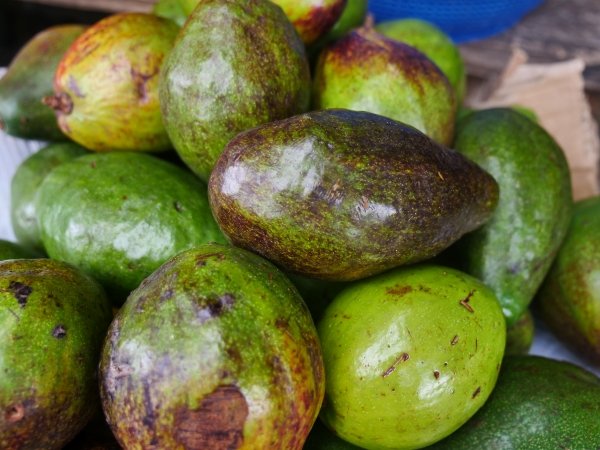Avocado is scientifically known as Perisea Americana, which belongs to the laurel family of evergreen trees. The fruit is known to have an oval shape with a very greenish color when unripe and a dark color when ripened for consumption.
Avocado is highly nutritional, contains vitamins and minerals, and is widely used in a variety of dishes and culinary applications around the world.
Avocado farming in Nigeria is yet to see a boost as many people are still planting pear on a subsistence basis. Only a few are now cultivating it as a cash crop for large-scale commercial purposes, even though it has a readily available market worldwide.
The fruit, a naturally nutrient-dense food that contains high levels of vitamins and minerals, is also known as "green gold" for its high prices and because it can generate foreign exchange in large volumes annually.
According to the Agricultural Outlook 2021–2030 report of the Organization for Economic Cooperation and Development (OECD) and the United Nations Food and Agriculture Organization (FAO), avocados will become the most marketed fruit by 2030.
Forecasts revealed that by 2030, avocado production will amount to 12 million tons, an amount that will triple the production achieved in 2010. Of this volume, up to 3.9 million tons will be exported, surpassing pineapple and mango exports.
"The growth will continue to be driven by global demand, lucrative unit export prices, and investments in surface expansion in both large and emerging production areas," the report states.
The big question is: where is the export value of Avocado production in Nigeria?
But the truth is, Nigerian farmers and the government are yet to invest in other agricultural commodities as they concentrate more on cocoa, rice, plantains, and maize, neglecting cash crops like Avocado, Mango, coconut, and palm fruits that can scale the international market.
Research has shown that the development of avocado has the potential to generate about 50 billion naira on an annual basis.
In sub-Saharan Africa, Kenya is a major avocado producer, with an estimated annual production of 180,000 metric tons in 2019. The Kenyan avocado subsector is experiencing new investments as the sector opens up. Each year, more than 1,000 containers are shipped to Europe, the Middle East, Russia, and Asia. Kenya has about 8,000 hectares of land under the crop.
For Nigeria to boost its earnings and improve the local economy, it must avoid its total dependence on oil and scale its investment value on other agricultural products whose production is not visible, especially Avocado.
A Nigerian farmer, Tunde Adeyemi, revealed that specializing in Avocado farming demands a lot of capital and specialization.
He stressed that Nigerian Farmers would want to invest in Avocado, but it needs support and incentives from the government and international Development organizations to provide assistance and training that will avert the factors that hinder the production of the crop in the country.
According to Adeyemi, to venture into avocado farming, farmers need to consider Land availability, access to water resources, market research, proper agronomic practices, and post-harvest management.
However, investing in Avocado farming will yield the following benefits:
High Demand: Avocados have gained popularity worldwide due to their nutritional value and versatility in various culinary applications. The demand for avocados has been steadily increasing, both domestically and internationally. Nigeria, with its large population and growing middle class, presents a significant market for avocados.
Profitability: Avocado farming can be highly profitable. The crop offers good returns on investment, especially considering the increasing demand and limited local supply. With proper cultivation and management techniques, farmers can earn substantial profits from avocado farming.
Export Potential: Nigeria has the potential to become a major exporter of avocados. The country's proximity to Europe, which is one of the largest importers of avocados, provides a significant advantage in terms of transportation costs and market accessibility. Expanding avocado cultivation can tap into the export market, bringing in foreign exchange earnings for Nigerian farmers.
Diversification: Avocado farming provides an opportunity for diversification of income sources for Nigerian farmers. Most Nigerian farmers currently rely on staple crops like maize, rice, and cassava. Adding Avocado farming to their portfolio can mitigate the risks associated with market fluctuations and climate variability.
Climate Suitability: Avocado trees thrive in tropical and subtropical regions, and the Nigerian climate is well-suited for avocado cultivation. Especially in Imo, Abia, Anambra, Enugu, Ebonyi, Edo, Akwa-Ibom, Delta, and Cross River States. With the proper selection of avocado varieties that are adapted to local conditions, farmers can achieve good yields and quality produce.
Job Creation: Avocado farming can contribute to employment generation in rural areas; it requires a significant labor force for various activities such as planting, pruning, harvesting, and post-harvest handling. This can help alleviate poverty and unemployment levels in rural communities across the country.
Environmental Benefits: Avocado trees are known for their ability to sequester carbon dioxide and mitigate climate change. Additionally, avocado orchards can provide shade, conserve soil moisture, and promote biodiversity. Investing in avocado farming can have positive environmental impacts, aligning with sustainable agricultural practices.

